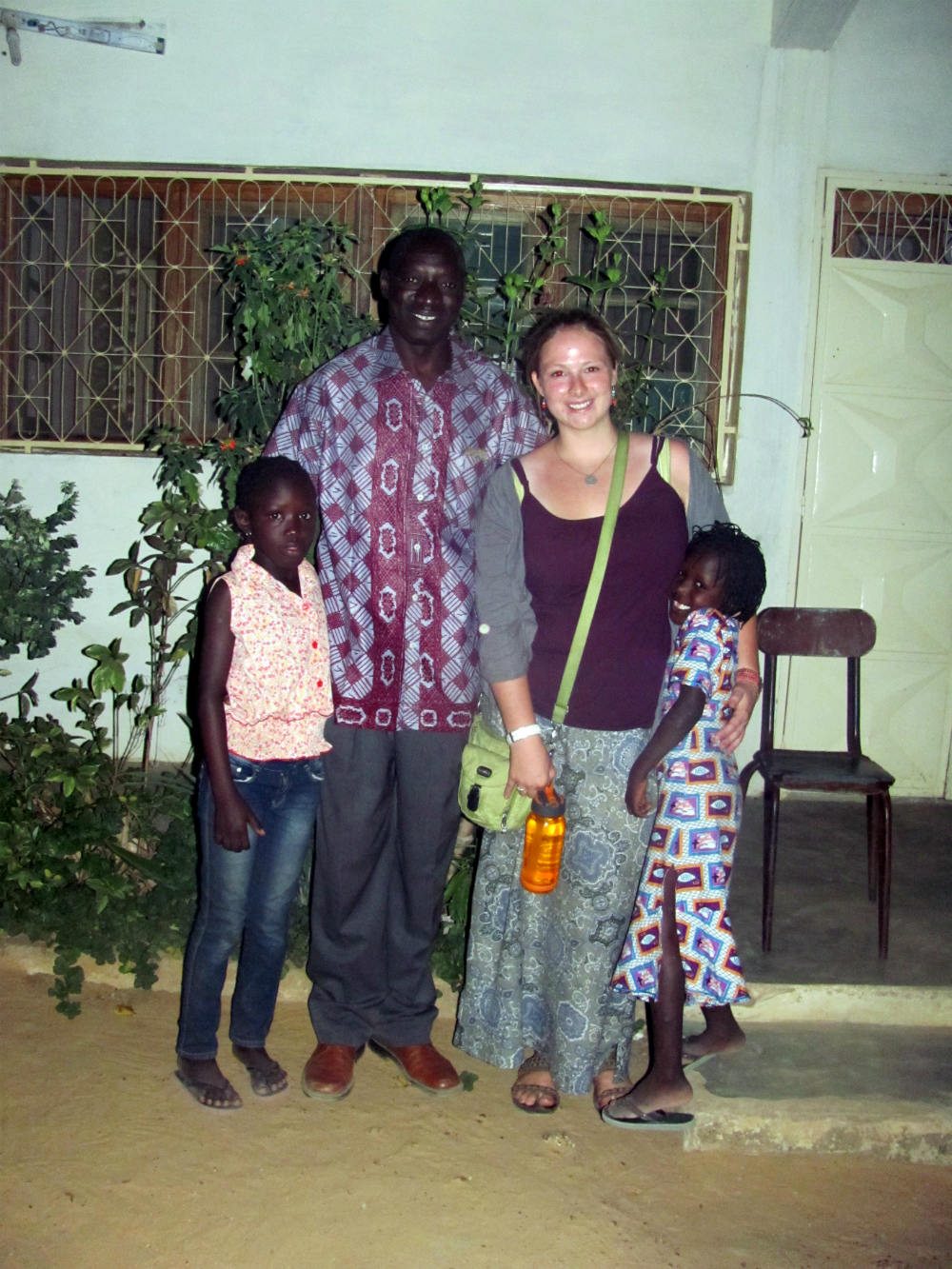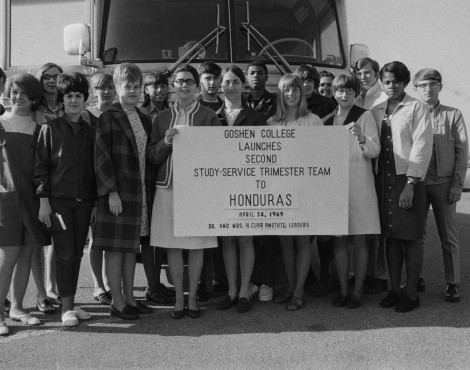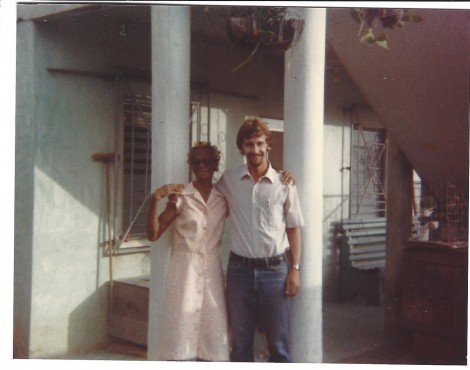I originally wrote a version of this story to use in a sermon given at my home church, Mountain View Mennonite Church in Kalispell, Montana.
When thinking back on my experience in Senegal, it is tempting to focus primarily on the things that struck me as being the most contrary to my life in the United States. The animals wandering the streets, mosquito nets over beds, and clothes hand-washed and hung out to dry were intriguing and exciting at first. These things are certainly noteworthy, and they had the most impact on me initially.
As the days passed, however, the novelty wore off. I grew accustomed to seeing such sights, and it was no longer out of the ordinary for a taxi to stop in the road for a herd of goats or a person to drop everything and pray when they heard the call to prayer. But throughout my time in Senegal, the attitude of the people who I encountered continued to amaze me. I experienced a kind of hospitality and acceptance that remains unparalleled in my life, which made the largest impact on me.
The far-reaching hospitality of Senegalese people was apparent after just a few weeks, when a minor conflict regarding lunch arose. Goshen students always had a break for lunch in our school day, and we were not expected to return home to our host families, although family members typically came home for the midday meal and ate together. On our lunch break, students would usually go to a bakery or cafe to eat, or run various errands around town.
I appreciated this chance to mail letters and explore the city with my classmates, but after a couple of weeks, my host mom discovered that we were not being fed at school. She felt badly about not providing lunch, and insisted that I come home during break to eat with the family. At first, I was trepidatious. I would miss out by not being with my classmates during lunch. When would I go to the post office, buy souvenirs, and socialize with my Goshen friends?
I spent a few days trying to figure out how I could let my host mom down gently — but then I was struck by a realization: I realized that the post office did not matter. Running errands did not matter. Hanging out with my college friends did not matter as much as spending time with my family, with whom I had such a finite amount of time to begin with. I made the decision at that moment to try to live as the Senegalese do, to return home for lunch and eat with my family, and to be wholly present in that experience. It was one of the best choices that I made on SST, and resulted in spending hours with my family that I would never trade.
My family warmly embraced me and wanted me to be a part of their life, which included breaking bread together. They had considered me a member of the Ndione family since I awkwardly stepped into the house that would become home on my first day in Senegal. I was the big sister. I helped cook meals, popped down to the market to buy sugar for my host mom, and got my sisters ready each morning by combing their hair and walking hand-in-hand with them to school. Why should lunch be any different? Looking back, I am incredibly grateful that I accepted my family’s hospitality rather than obsessing over my need to have time to myself.
Before we departed for the United States, I stopped in to visit my host family. It had been over six weeks since I had seen them. I was stopping by unannounced, and hoped for a quick hello before we left. When I walked in the door, my three-year-old host sister leapt up from her place on the floor and jumped into my arms with unparalleled enthusiasm. My other host sister welcomed me to leave my purse in my bedroom while I visited. When I clarified that it was no longer my bedroom, she gave me a wide grin and said, “It is always your bedroom.” I ended up spending the rest of the evening visiting my family, playing with my sisters and sharing in a delicious meal.
These are the experiences that I miss most. I miss the wholehearted acceptance of people that I saw daily. I miss interacting with others and knowing that they valued the time spent with me more than any errand they had to run. I miss the hospitality warmly displayed by lunches at home and afternoon tea with my family. I miss my host mom’s grace toward me when I misspoke or engaged in a cultural faux-pas unknowingly. The dirt roads, the bucket showers, and the cockroaches were part of my experience, but not the most significant things.
I observed a people and a culture that are filled to the brim with the acceptance and grace of Christ, and that is the experience that left a permanent mark on me.
 Erin Brenneman spent her SST in Senegal during the summer of 2012. She graduated from Goshen College with a degree in social work (minor in conflict transformation) in 2013. She is currently working as a barista for Montana Coffee Traders in Kalispell, Montana, and plans to move to Portland, Oregon in the fall.
Erin Brenneman spent her SST in Senegal during the summer of 2012. She graduated from Goshen College with a degree in social work (minor in conflict transformation) in 2013. She is currently working as a barista for Montana Coffee Traders in Kalispell, Montana, and plans to move to Portland, Oregon in the fall.




